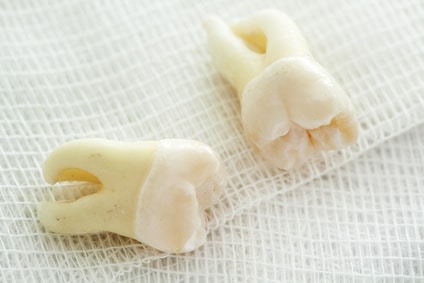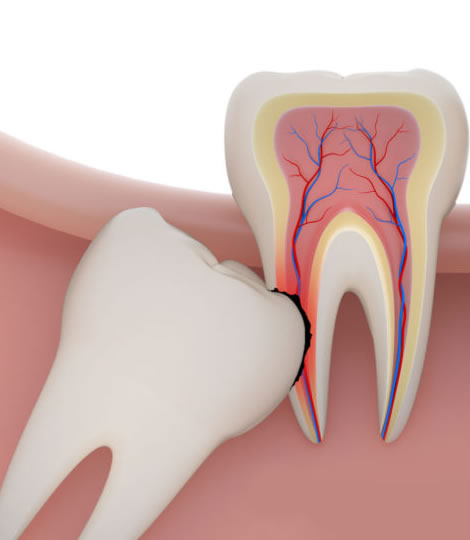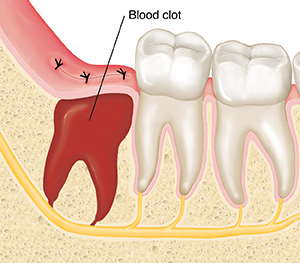Wisdom Teeth Removal Aspendale: Post-Procedure Care and Recovery Tips
Wiki Article
Discovering Various Sedation Options for a Comfortable Wisdom Teeth Extraction Experience
The use of sedation throughout such treatments has actually become increasingly usual to ease anxiousness and pain. With a variety of sedation options readily available, from neighborhood anesthetic to general anesthetic, each method offers differing levels of leisure and pain control.Regional Anesthetic
Neighborhood anesthetic is a frequently made use of method for numbing details areas of the mouth during wisdom teeth removal procedures. By carrying out a neighborhood anesthetic, such as lidocaine, a dentist can make sure that the patient stays pain-free and comfy throughout the extraction process.Among the key benefits of regional anesthesia is its targeted numbing impact, which suggests that just the particular area being treated is impacted. This local approach minimizes the risk of systemic adverse effects and enables a quicker recuperation post-procedure. In addition, neighborhood anesthetic is thought about to be a risk-free and regular practice in dentistry, with very little dangers included when provided by a skilled expert.
Laughing Gas
Laughing gas, frequently recognized as giggling gas, is a kind of sedation often used in dental care to aid individuals kick back during oral procedures. It is a efficient and safe method that entails inhaling a combination of nitrous oxide and oxygen via a mask put over the nose. One of the key benefits of laughing gas is its fast onset of action, normally within minutes, offering almost immediate leisure for the person. This sedation choice allows the patient to continue to be mindful and responsive throughout the procedure while really feeling at simplicity and comfy.When the mask is gotten rid of, the results of the gas put on off rapidly, allowing clients to resume their typical tasks without remaining sedative effects. Nitrous oxide is appropriate for individuals of all ages, making it a functional sedation alternative for wisdom teeth extractions and various other oral treatments.
Oral Sedation
Dental sedation, a medicinal technique utilized in dental care, entails the management of sedative drugs by mouth to generate a relaxed state throughout oral treatments. This form of sedation is generally used for patients undertaking wisdom teeth extraction to relieve anxiety and discomfort. The medications prescribed for oral sedation come from a course of medicines called benzodiazepines, which have sedative, anxiolytic, and amnesic properties. Generally, the client takes the prescribed medication before the procedure, permitting enough time for the sedative effects to hold.One of the key advantages of oral sedation is its convenience of management. Unlike intravenous sedation, dental sedation does not require shots or needles, making it a much more comfortable option for people with a fear of needles. Additionally, dental sedation is thought about safe and reliable when administered by skilled dental specialists. Nonetheless, it is vital for clients to follow pre-operative directions offered by their dental practitioner, such as refraining from eating or drinking before the treatment to ensure the sedative drug works as planned.
IV Sedation
Provided intravenously by qualified physician, IV sedation is an effective method utilized to cause a regulated state of deep leisure and unconsciousness during oral treatments. Unlike dental sedation, which can be unforeseeable in its results, IV sedation enables exact control over the level of sedation, making it an excellent option for intricate procedures like wisdom teeth extractions.Throughout IV sedation, a sedative drug is delivered directly right into the blood stream with a blood vessel, allowing it to work swiftly and successfully. This approach ensures that the client stays comfortable and unaware of the treatment while still keeping crucial functions such as breathing and heart price.
Among the main benefits of IV sedation is its ability to offer a much deeper level of sedation compared to various other methods, making it specifically ideal for individuals with high levels of anxiousness or those undertaking considerable oral work (wisdom teeth removal aspendale). In addition, the results of IV sedation typically subside progressively after the treatment, decreasing the likelihood of grogginess or remaining negative effects. In general, IV sedation provides a efficient and safe option for making certain a comfy and stress-free experience throughout wisdom teeth extraction

General Anesthesia
Having actually gone over the benefits of IV sedation for wisdom teeth removal, the application of general anesthetic offers a different option for people needing a much deeper level of unfamiliarity during oral treatments. General anesthesia generates a controlled state of unfamiliarity, making sure the patient really feels no discomfort or pain throughout the extraction process. This approach is particularly valuable for people with severe dental stress and anxiety, complex surgical demands, or those undertaking several removals concurrently.General anesthetic is provided by a trained anesthesiologist that very closely monitors more tips here the client's vital indications throughout the treatment. It entails using intravenous medications or breathed in gases to induce a state of unconsciousness. While under general anesthetic, the patient will not understand the surgery, experience any pain, or have any type of recollection of the treatment later.
Although basic anesthesia is safe when administered by qualified experts, it brings a slightly greater danger contrasted to various other sedation alternatives - wisdom teeth removal aspendale. Clients taking into consideration basic anesthetic for my sources knowledge teeth extraction must review the possible threats and advantages with their dental practitioner or dental specialist to make a notified choice based upon their specific demands and case history

Conclusion
Finally, various sedation choices are readily available to make sure a comfortable wisdom teeth removal experience. Neighborhood anesthetic is generally utilized for numbing the certain area, while laughing gas provides leisure and pain relief. Dental sedation and IV sedation deal much deeper degrees of leisure, depending on the client's needs. General anesthetic can be made use of for much more complex cases. It is important to speak with your dental expert or dental doctor to figure out the most ideal sedation choice for your procedure.Nitrous oxide is appropriate for individuals of all ages, making it a flexible sedation alternative for wisdom teeth extractions and other dental procedures.

Report this wiki page